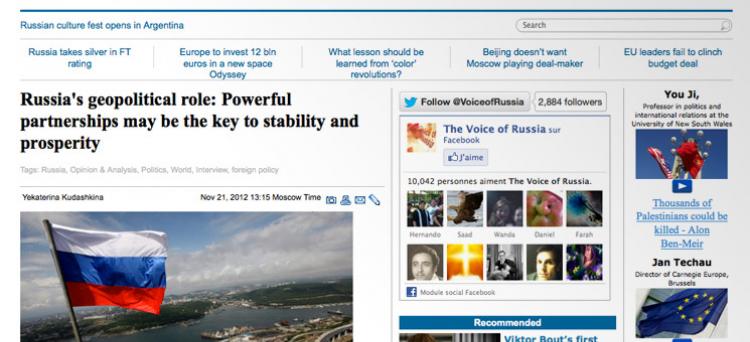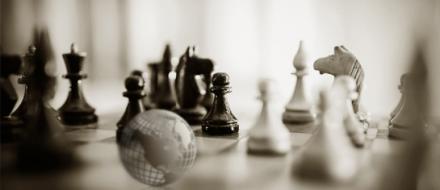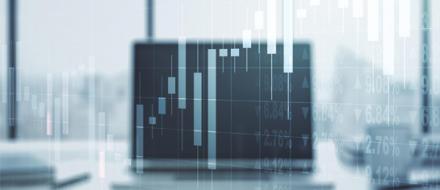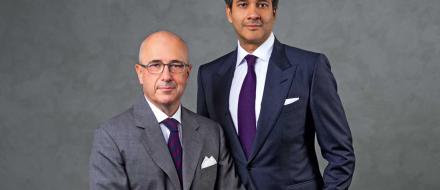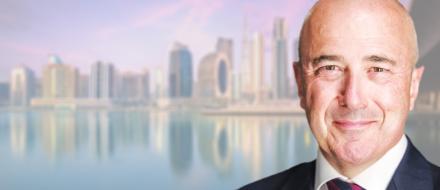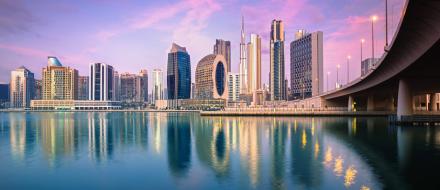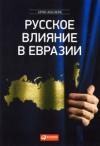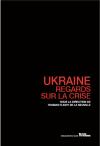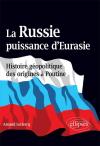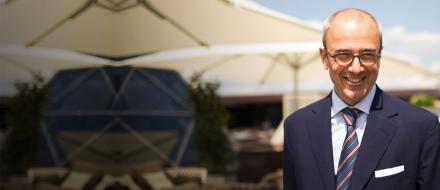Russia’s geopolitical role: Powerful partnerships may be the key to stability and prosperity
Geopolitical issues are now dominating the strategic thinking of the world’s great powers. Some would even argue that cooperation, rather that competition, could be the key to improving the global economy and easing tensions. Arnaud Leclercq, partner and Head of the New Markets division at Lombard Odier Capital Partners, gave an interview to the Voice of Russia (La Voix de la Russie) in which he explained Russia’s unique position that could potentially open up new markets and create powerful partnerships – which would in turn lead to a more prosperous and stable future.
Arnaud Leclercq: Financial markets are still in a very unstable situation. It is getting better, but it is getting better thanks to some very strong policies, especially from the European Central Bank or the Federal Reserve in the US. But one can see that as soon as there is a doubt coming up, be it about Greece or be it about Italy or another country, then immediately the financial markets tend to sort of remember that in fact the situation is not so good and is still extremely fragile. So, it is a very uncertain time.
Ekaterina: And I think that in one of your articles you said that Russia is currently viewed as a stable location?
Arnaud Leclercq: To some extent, yes. There is always of course a certain level of subjectivity in this. Some people think it is not as stable as I would say. But I think we are speaking in relative terms. And as you know there is a shift, as far as community is concerned, among some countries which are typically some OECD countries, just take Ireland to pick one of them, but we could surely pick a number of them, which were stable and trustworthy. If you even take Spain, the state policies of Spain were actually good. The crisis in Spain or in Ireland is not coming from the state which has overspent budget money and so on, it actually came from the private sector and then the country was contaminated.
So, from that standpoint you see that a number of other countries, like Russia, and Russia is not the only one, have resumed over the last few years as indeed some places which appear to some extent as more stable. They have much less debt burdens. In the case of Russia there is a sovereign fund reserve, the country’s own currency reserves are very big. The growth of the country’s economy should be about 3.8% for 2012 which compared to other countries which are in recession is indeed quite a good result. So, from that standpoint – yes. It is not an island, it is not the only one but it is one of the countries which can be regarded as more stable than many others.
Ekaterina: But what are the risk factors we should watch?
For Russia?
Ekaterina: Yes.
Arnaud Leclercq: Well, the risk factors, there have been a few. But there are two levels I think with Russia. First of all, the risk factor we can say is that Russia is still by far too much relying on the price of oil. And if you say that the budget was breaking-even with oil price roughly of $33 per barrel in 2007 – the break-even price today for Russia would be the price of oil $117 per barrel. So, you quickly understand that if the price of oil swings back in another direction and goes down, and there is a risk today that that price of oil will go down because of the global recession eventually, – that will immediately impact short term\midterm the resources in the budget of Russia.
But as I said the other point for Russia, which is probably more difficult to assess but probably more interesting, is about the missed opportunities which Russia has in terms of international trade and knowledge and its presence having one arm, if I can say so, in Western Europe and the other arm on the Pacific, and enjoying, but probably not enjoying as it should, the growth of the whole area in Asia.
Ian: Which are some of those markets do you feel that could be developed further in Russia? And what would need to be done to take advantage of this situation?
Arnaud Leclercq: There are already some steps which have been taken recently. Some of them of course are the pipelines going to Japan, to Korea, some of them being just finished or some other still in the construction. So, that of course is one thing. There are some major infrastructure roads and railways which will also accelerate and push the international trade.
Don’t forget that to go from one part to the other of the planet takes 6 weeks by boats. And the roads should be appropriate, as they are in the planning today, crossing Kazakhstan and to some extent Russia so that the goods will be delivered in ten days and most probably for a lower price. So, this is going in the right direction.
The fact that also the BRICS countries, being Brazil, Russia, India and South Africa, we can add it as well, and China of course – have decided to some extent to avoid doing their international trade through the US dollar but directly in their own currencies – this has also been the step in this direction.
But most probably, what is missing in today’s Russia is that – the push in this direction is still made by the state and some very large state companies, and I would say that traditionally they are pipelines, Gazprom – and there is nothing wrong with that. And there are many countries, like Indonesia or in the Middle East and so on, which have deep pockets and will be ready to cooperate much more with Russia should they know whom to talk to and should they have a better understanding of what is going on here. But unfortunately that’s often nothing of the case.
Ian: So, in this effect this potential for growth needs to be driven both by internal investment and also external cooperation and the bringing in of firms from the international market also.
Arnaud Leclercq: Yes. But today the fact is that Russian companies have a very limited access to the international markets being on the equity side of the debt, or being on the bond’s side. And that’s a fact, unfortunately. So, that’s definitely something which has to be improved tremendously over the years to come in order to put Russia in a position to have access to liquidity, basically.
Ian: Is this reluctance on behalf of the capital markets to invest in Russia? Is this still because they are very overcautious because of the financial crisis, is Russia still seen as sort of too hot to handle with the risk?
Arnaud Leclercq: Probably, to a large extent. Unfortunately, I think, we can see it in some Western media, we hear more about bad news than good news about Russia. If we had, not to hide anything about the bad news which we all know, but at least at the same time see a more balanced way to talk about what is going on here which is good – that is certainly something which will improve the investment climate.
But there are some good signs going on. We should take for instance the recent decision to boost dividends for state owned companies. But that is certainly one aspect. We should give some confidence to some equity owners of such companies, so that is a positive sign, just recent but a positive sign. The IPO of Sberbank, to give another example, talking about their management, in terms of governance, it was well prepared and oversubscribed which means that there can be some appetite from the financial markets for Russian companies. The question is that today it is not probably certain enough, if I can say this, the potential is not leveraged enough.
Ekaterina: I think that I have also read in one of your articles that Russia may become a powerful partner of Europe. In what sense?
Arnaud Leclercq: It is a large question. Well, you know, obviously Western Europe, as we say, is doing “South”. And I’m not just talking of Italy and Spain and Greece. South is going down, unfortunately in a number of regards – huge debts, recession in a number of these countries, unemployment which is extremely high in some of them. The big example is Spain – more that 25% of the working force is unemployed. So, the fact that Russia next door is actually still a land with huge resources, with political stability for the years to come, whether you like or you don’t like this political situation, but no one I think today will expect that it could be unstable. And that gives the ground for a large population, still many needs, some resources and stability, tax wise and Russia is more incentivized than a number of Western European countries.
So, in terms of returning investments – that is also impacting the situation, then I’m saying yes. You know, instead of maybe giving the impression of keeping Russia on the side, as different countries somewhere there which people don’t really understand, we should remember that for quite some time Russia was, if not part, but was extremely close to Europe. And actually it is not that nice philosophy or friendship but probably now it could be needed by the Western European countries to have this backbone not so far away.
Ekaterina: And how do you see the role of Russia in the geopolitical aspect in general?
Arnaud Leclercq: Well, Russia has moved in ten years’ time from being really on the side and being humiliated in a number of regards back in the international concept of powers. Where it is going to go forward it is difficult to say because the improvements which have been made I think were probably very well deserved over the last ten years. Now, where it may go – I think Russia is pushing for a world which will be not just China and the US, but will be having a number of strong powers such as Russia, Turkey, China, India… in a way, not like in the Cold War when you had two major powers facing one another but something which is more multipolar kind of geopolitical world. So, I think, definitely Russia is pushing in this direction. Will it succeed – it depends on the Government, in which way you want to go.
Ian: One of the directions, we’ve spoken a little about Europe, is that Russia also tried to make links, build relationships between the former Soviet republics, particularly in central and southern Asia. Are there sort of positive developments there you see that could potentially open up greater benefits for Russia?
Arnaud Leclercq: Difficult to say because some of these ex-republics have leaders who can change their mind and so on. There are some relations which are stable and have been since the fall of the Soviet Union, like with Kazakhstan. In my knowledge the relationship with Kazakhstan is good. And this is a country which managed to have good relationship with the US, with Europe and with Russia – so, that’s an interesting example. I think Russia, at least today, is quite concerned if we are talking about some borders and this part of the world, about the withdrawal from Afghanistan of the US. And there are some major uncertainties about what is going to be there after the leave in terms of either terrorism or drugs and so on. So, there is certainly a worry. Russia will have no choice and probably it has already decided to build or consolidate solid ties with its neighbouring countries, especially those in Central Asia, in order to be protected from these kinds of threats.
Ekaterina: There’s been some speculation about a systemic change imminent in the global financial markets’ operation. First of all, they are saying that perhaps we need to expect a new reserve currency, the international currency that would come as a substitute for dollar.
Arnaud Leclercq: Well, that is one of the risks, yes. About the euro which has been identified by some economists, and some economists are now saying that the cost of keeping the euro is substantially higher than not keeping it or splitting it maybe between northern euro and southern euro. So, some economists have indeed questioned that.
The fact, I think that you have seen, especially for the last two years, is that some currencies such as Singaporean dollar, Australian dollar, Norwegian kroner have become currencies of safety. And some people have decided to use some of these currencies in their trade, feeling that they have a more stable future.
So, there is a shift. And to create a new international currency – this I haven’t heard of. But whether some currencies are taking somehow the place of some others – the answer is yes. This is a bit of a trend. Is it a long term trend – this is difficult to say. Probably it will last as long as uncertainty in the Eurozone will last.
Ekaterina: How about the future of the Chinese currency?
Arnaud Leclercq: They have taken some steps to have the yuan really becoming or getting closer to become an international currency. We’re not there yet, but it seems that the Chinese authorities have indeed taken some steps in this direction or at least to make it more recognized in the international trade.
Ekaterina: And another thing we need to overcome apart from the challenges which our business and our market is facing, another thing is the inertia in the perception of other global players?
Arnaud Leclercq: Can you be more specific in your question?
Ekaterina: Yes.You said that the international press tends to focus more on negative developments and perhaps sometimes is not covering positive developments which are there but which tend to be somehow overlooked.
Arnaud Leclercq: Yes, but I think in this case it is like in a couple – it is not necessary that just one member of the couple is guilty, I think it is being both. On the one hand it is probably that the newspapers have taken the habit of saying bad things about this and that, not just about Russia, but about more attractive maybe, to say bad things when obviously it is doing right. On the other hand, definitely Russia should, if I can say so, sell itself much better to the elites for instance from the Western Europe and other parts of the world. So, in this I don’t think they do that enough, that’s clear.
Ekaterina: And my last question. Could you tell our listeners a little bit more about the book which you’ve written about Russia and the opportunities open to it?
Arnaud Leclercq: The book is about Russia as a power, as a Eurasian power. So, I’m stating that it is not just European but it is Eurasian, contrary to some other people who have different views. And I’ve written a history of Russian geopolitics. Actually, I was working as a businessman in this region for the last 20 years. And somehow you could see, especially for the last 10 years, some kind of revival with the President Putin of geopolitics.
Sometimes I’m making reference to Nicolai I or to Peter Stolypin, or Alexander II and some others. You also remember from a general knowledge of what Peter the Great and Catherine the Great used to do in order to open Russia to westerners and to learn from their technologies and so on.
At the same time there is some kind of frustration that Russia is still on the sides actually of the world. So, making this sort of a statement I’ve tried to better understand and tried to look as much further and deeper in history if there any original source of this long term geopolitical Russia in today’s world. So, that’s what the book is all about.



